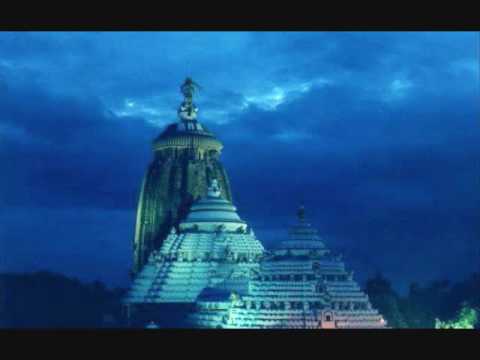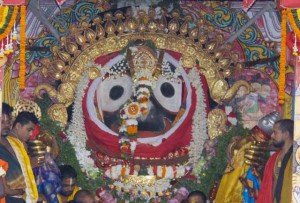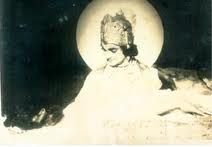The importance of making pilgrimages to holy places is well-known. However, the divine favor a person receives by visiting the Nilgiri Hill is exceptionally rare, as it provides liberation from worldly bondage and, by the grace of Lord Purusottama, can even qualify a person to go to heaven while still alive.
King Ratnagriva, whose pious life earned him the merit to see the otherwise invisible Nilgiri Hill, also known as the Blue Mountain, was one of the extremely fortunate souls who went to heaven without having to shed his mortal coil.
Fascinated by stories about the Nilgiri Hill, King Ratnagriva decided to visit the sacred place with his queen, minister, and a Brahmin guide. However, they could not see the hill initially, as it remains invisible until one attains a certain spiritual level and pleases Lord Purusottama.
King Ratnagriva, being a virtuous soul living a strictly spiritual life, decided to please the Lord by singing His glories. His determination bore fruit, and he finally won the Lord’s favor to see the holy hill.
Overwhelmed, King Ratnagriva, along with the Brahmin, the queen, the minister, and a saint named Karamba, began ascending the hill during an auspicious moment called Vijay. The hilltop looked picturesque, laden with unfamiliar but magnificent trees. Nestled atop the hill was a beautiful temple with walls plated in gold. Lord Brahma was believed to visit this temple daily to worship Lord Purusottama and offer Him food.
All five of them entered the temple and saw a golden throne studded with precious stones, upon which stood the idol of Lord Purusottama in His four-handed form. At His side were courtiers such as Chanda, Prachanda, and Vijay, ready to serve Him. They all bowed to the Lord, bathed the idol while chanting Vedic mantras, performed other rituals of worship, applied sandalwood paste to His body, and robed Him in beautiful garments. They then offered Him food and, at the end, sang His glories together.
Pleased with their sincerity and devotion, the Lord said, “O king! Let me make it known to you all that I am the Supreme Soul, beyond the material world and nature. Eat the Prasad soon, and you will attain the four-handed form and achieve the ultimate end of life.”
The king and the others ate the holy Prasad, and a few minutes later, a divine chariot decorated with hundreds of small bells appeared. They made their obeisance to the Lord and boarded the chariot. Each of them had four hands bearing the signs of Sankha, Chakra, Gada, and Padma. Within moments, the chariot soared into the sky and vanished into the blue, taking the five holy people to heaven alive.
Lessons to be Learned
- Divine Favor through Devotion: The story illustrates that sincere devotion and singing the Lord’s glories can lead to divine favor, allowing even the invisible to become visible and granting liberation.
- Spiritual Attainment: The importance of attaining a certain spiritual level to perceive divine realms is emphasized. King Ratnagriva’s strict spiritual life qualified him to witness and experience the divine.
- Power of Prasad: The transformative power of Prasad is highlighted, as consuming it granted the devotees a divine form and a place in heaven.
- Unity in Devotion: The collective devotion of the king, queen, minister, Brahmin, and saint demonstrates the power of united worship and the strength of community in spiritual practices.
Quotes from Scriptures and Srila Prabhupada’s Books
Srimad Bhagavatam: “One who knows the transcendental nature of My appearance and activities does not, upon leaving the body, take his birth again in this material world, but attains My eternal abode, O Arjuna.”
- Bhagavad Gita 4.9
Caitanya Caritamrita: “Pure devotional service in Kṛṣṇa consciousness cannot be had even by pious activity in hundreds and thousands of lives. It can be attained only by paying one price — that is, intense greed to obtain it. If it is available somewhere, one must purchase it without delay.”
- Caitanya Caritamrita, Madhya 8.70
Srila Prabhupada: “The real benefit of pilgrimages is that one gets the chance to associate with pure devotees. When one goes to a holy place, one should search out the pure devotees residing there, take lessons from them, try to apply such instructions in practical life, and thus gradually become elevated in Krishna consciousness.”
- Nectar of Instruction, Text 4
Conclusion
This story from the Padma Purana highlights the transformative power of sincere devotion and pilgrimage. King Ratnagriva’s journey to the Nilgiri Hill, his unwavering devotion, and the miraculous transformation of himself and his companions emphasize the profound impact of spiritual practices. Reflecting on these lessons and the teachings from scriptures and Srila Prabhupada’s books can deepen one’s faith and inspire a more dedicated spiritual life.



